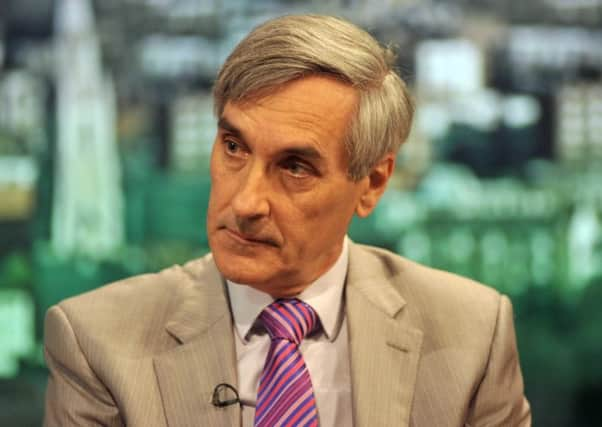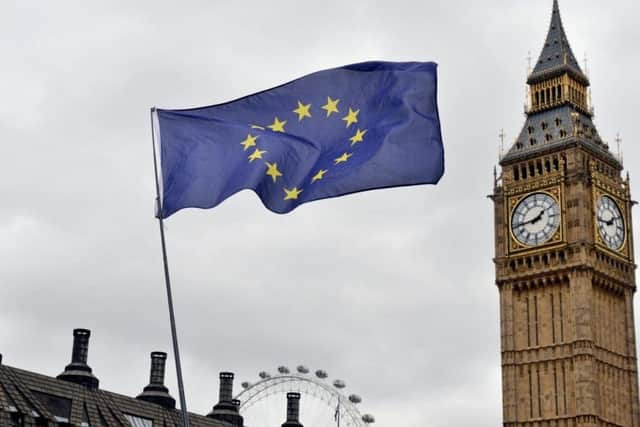John Redwood: How Brexit will lead to prosperity '“ and not austerity


I want more money spent, but I do not want it spent irresponsibly. I am offering the Government the biggest spending cut that they will ever make, which is the £12bn a year that we do not need to keep on sending to Brussels.
In the spirit of the Brexit vote, I say bring our money back, take control of it and spend it on our priorities.
Advertisement
Hide AdAdvertisement
Hide AdBefore the referendum, I took the precaution of setting out a draft Budget that I would like the Government to adopt. I explained that I was very unlikely to be the Chancellor of the Exchequer and that people could not take my draft as a promise; it was a set of ideas on how that money could be spent.


I suggested, mainly, more spending on areas such as health and social care and education, and also on tax reductions — getting rid of our damaging VAT rates on green products, on feminine hygiene products and on domestic heating fuel, which hit those on the lowest pay most heavily. Those are things that we cannot do for ourselves all the time that we are in the European Union.
Is it not a disgrace that the world’s fifth-largest economy and an important country cannot even control its own taxes? Over all those years in the EU, we were assured by Governments of all persuasions that tax was a red line and that the House of Commons would always be able to decide what the tax rates would be and what was going to have to be taxed. That simply will not be true until we leave the EU.
That is the first bonus. The Brexit dividend will have a double advantage: not only will it give a boost to growth the first time we do it, but it will cut our balance of payments deficit.
Advertisement
Hide AdAdvertisement
Hide AdI turn now to the energy industry. Under European rules we were trapped in a common European energy policy, which meant that we went from being entirely self-sufficient in energy to being quite heavy importers. There is a wish to make us more and more dependent on imported electricity and gas through interconnectors with the continent, meaning that we have less security of supply and are more dependent on the goodwill of many people on the continent — ultimately, on Russian goodwill, because of the importance of Russian gas to the energy supply on the continent.


Fortunately, the situation has not gone damagingly too far, and we can rescue it when we come out of the European Union. Our gas supplies can be much more dependent on Norway and Qatar, which are not members of the European Union. That is a useful precaution.
What would I put at the top of my list for a good industrial strategy? My No. 1 need would be a plentiful and cheap supply of energy.
There is huge scope for farming. I hope that we develop a farming policy that still provides public money to support farms sensibly, but that will be more geared to the production and successful sale of food, particularly domestically. We want fewer food miles on the clock and rather more local produce.
Advertisement
Hide AdAdvertisement
Hide AdInfrastructure is very important. If we wish to take advantage of our greater freedoms, we will certainly need a lot more capacity in road and rail. Rail capacity can be increased more cheaply and more rapidly if we go over to digital controls. One of the features of our railway system is that we run very few trains an hour on any given piece of track. With better controls, we could increase the number of trains we ran on existing track — a quicker and cheaper solution than having to build lots of new tracks.
The aim of Brexit is to cheer the country up, to get wages up, and to get jobs up. So far it is all going reasonably well. There are more jobs after the Brexit vote, despite the false forecasts. Pay is going up a bit. We would like more improvement in real pay, and it is good to see some moves being made in the public sector.
The big Brexit bonuses we want comprise spending our own money and knowing when, how much, and what we are going to get for it; having a fishing policy that makes sense both for British fishermen and for British fish; having a better agricultural policy that means we can grow more of our own food; and having an energy and industrial policy that supports more investment and more growth.
John Redwood is a Tory MP and former Cabinet minister. He spoke in a House of Commons debate on Brexit and the economy – this is an edited version.